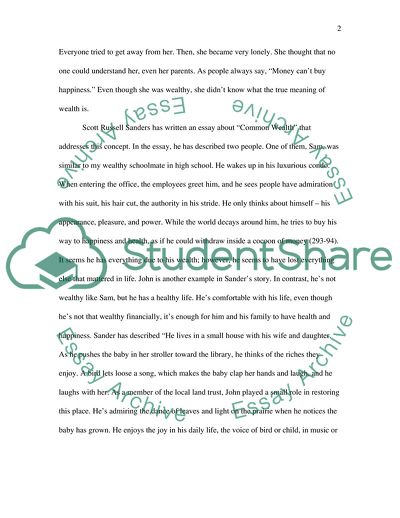Determining the Value of Wealth Personal Statement Example | Topics and Well Written Essays - 2500 words - 1. https://studentshare.org/philosophy/1715661-the-values-of-wealth
Determining the Value of Wealth Personal Statement Example | Topics and Well Written Essays - 2500 Words - 1. https://studentshare.org/philosophy/1715661-the-values-of-wealth.


